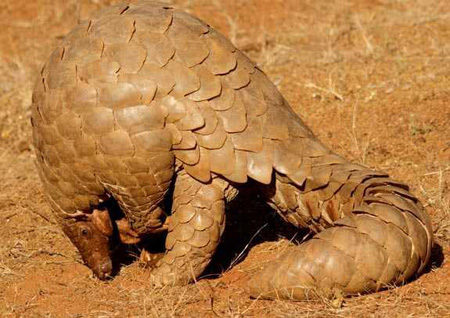Protecting Pangolins in Uganda

Last week, Erica Goode at The New York Times reported on the struggle to save a threatened and curious creature: “With its scaly exterior, peculiar body shape and propensity for rolling into an armored ball when threatened, the pangolin has invited comparison to the artichoke and the pine cone.”
Goode reports that in January two tons of pangolin skins were seized at the Entebbe Airport in Uganda, “packed in boxes identified as communications equipment.” Pangolin scales are prized in China and other countries as a traditional medicine to treat skin diseases and other ailments.
In January, ELAW partners at Greenwatch filed a case calling the Uganda Wildlife Authority to task for issuing an illegal export license. Greenwatch won a victory last month when the Uganda High Court issued an interim order halting the export of the pangolin scales.
“The Convention on International Trade, to which Uganda is a signatory, prohibits trade in pangolin scales,” says Melody Kukundakwe, Greenwatch Communication Officer.
Goode reports that pangolins — “an insectivore with a tongue longer than its body and a tail so powerful it can hang upside down from tree branches” — are the most frequently trafficked mammal.
ELAW is collaborating with Greenwatch attorney Samantha Atukunda to ensure that UWA does not issue export licenses for the scaly armor of Uganda’s threatened pangolins.
The court plans to rule on May 25.
For more information, see:
New Vision, April 1, 2015
Pangolin scales case judgement for May 25
New York Times, March 31, 2015
A Struggle to Save the Scaly Pangolin
Daily Monitor, March 4, 2015
Court stops UWA from issuing pangolin licences
New Vision, January 29, 2015
UWA sued over export of pangolin scales
If you would like to learn more about our work and how you can support ELAW, visit our website, Facebook, and Twitter.
Maggie Keenan
Communications Director
Environmental Law Alliance Worldwide

